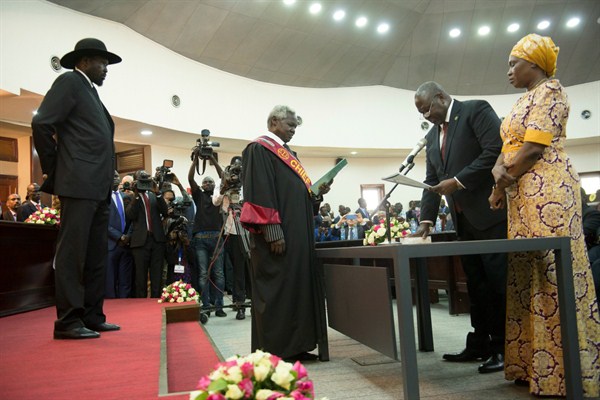Editor’s Note: Every Friday, Andrew Green curates the top news and analysis from and about the African continent.
South Sudan finally has a transitional government, though the country’s citizens and neighboring leaders are watching anxiously to see if this coalition will hold together longer than a previous attempt, which collapsed after only three months.
President Salva Kiir swore in opposition leader Riek Machar as his first deputy last weekend, just ahead of a twice-delayed deadline to form a unity government. Kiir also installed three additional vice presidents—two from the government and one from the opposition; a fifth, drawn from another opposition group, is expected to be named soon, along with a full Cabinet. The transitional body will lead the country until national elections in three years.

